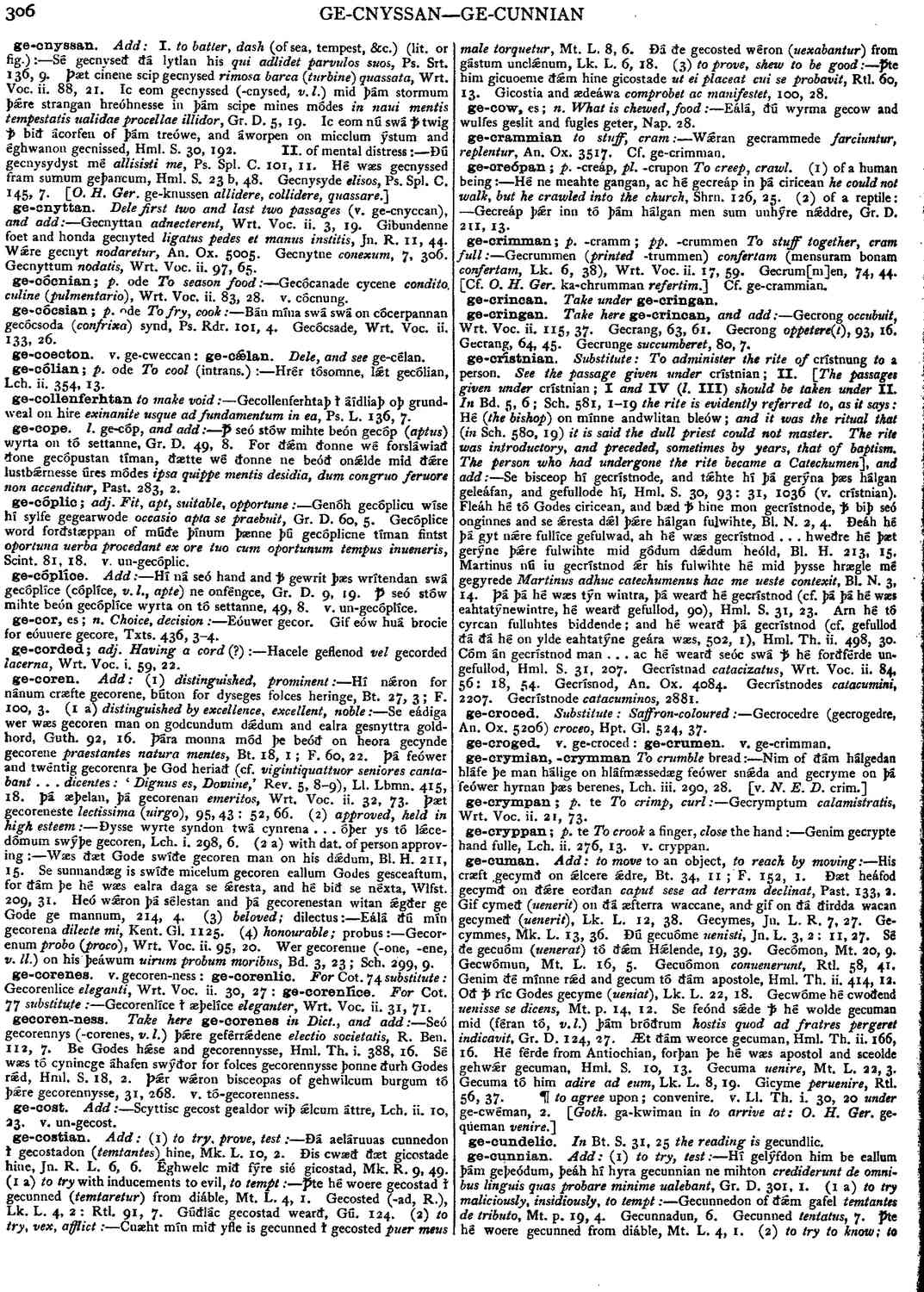ge-cuman
-
His cræft . gecymð on ǽlcere ǽdre,
- Bt. 34, 11; F. 152, 1.
-
Ðæt heáfod gecymð on ðǽre eorðan
caput sese ad terram declinat,
- Past. 133, 2.
-
Gif cymeð (
uenerit) on ðá æfterra waccane, and gif on ðá ðirdda wacan gecymeð (uenerit ),
- Lk. L. 12, 38.
-
Gecymes,
- Jn. L.R. 7, 27.
-
Gecymmes,
- Mk. L. 13, 36.
-
Ðú gecuóme
uenisti
,- Jn. L. 3, 2: 11, 27.
-
Sé ðe gecuóm (
uenerat
) tó ðǽm- Hǽlende, 19, 39.
-
Gecómon,
- Mt. 20, 9.
-
Gecwómun,
- Mt. L. 16, 5.
-
Gecuómon
conuenerunt,
- Rtl. 58, 41.
- Genim ðé mínne rǽd and gecum tó ðám apostole. Hml. Th. ii. 414, 12.
-
Oð ꝥ ríc Godes gecyme (
ueniat
),- Lk. L. 22, 18.
-
Gecwóme hé cwoðend
uenisse se dicens,
- Mt. p. 14, 12.
-
Se feónd sǽde ꝥ hé wolde gecuman mid (féran tó, v.l.) þám bróðrum
hostis quod ad fratres pergeret indicavit,
- Gr. D. 124, 27.
-
Æt ðám weorce gecuman,
- Hml. Th. ii. 166, 16.
-
Hé férde from Antiochian, forþan þe hé wæs apostol and sceolde gehwǽr gecuman,
- Hml. S. 10, 13.
-
Gecuma
uenire,
- Mt. L. 22, 3.
-
Gecuma tó him
adire ad eum,
- Lk. L. 8, 19.
-
Gicyme peruenire, Rtl. 56, 37. ¶ to agree upon; convenire. v. Ll. Th. i. 30, 20
under
ge-cwérnan, 2.
Bosworth, Joseph. “ge-cuman.” In An Anglo-Saxon Dictionary Online, edited by Thomas Northcote Toller, Christ Sean, and Ondřej Tichy. Prague: Faculty of Arts, Charles University, 2014. https://bosworthtoller.com/47530.
Checked: 0